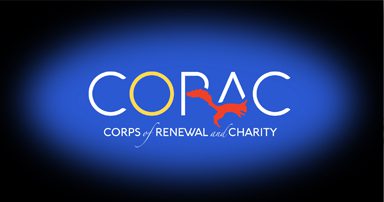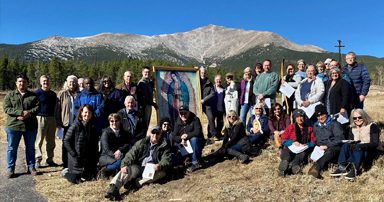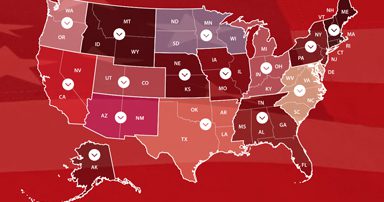(This piece originally was posted on July 20, 2016. I thought it was time for a reprise of The Rules of Regency. Though few see it yet, the tide IS starting to shift – but we have plenty of work before us. Some are starting to get so weary they despair of things ever being right again. They will be, but not without us making our stand. Remember, as Matthew 24:13 says. “…he who endures to the end will be saved.” Time for some endurance ahead. Some minor edits have been made to this text to take out any prophetic references, but the substance remains as it was when first written, four and a half years ago.-CJ)
In days gone by, when a sovereign King was either too young or too ill to carry out his duties, a Regent was often appointed to rule in his place until he was old enough or well enough to do so, himself. In the US, the people are supposed to be sovereign, acting through a representative democracy under the rule of law. That system, though not dead, is on life support. The rule of law is in tatters.
Back in 2007 I began to contemplate what a world in tatters would look like, a world where all our institutions had collapsed catastrophically – and develop a plan to get a shattered people back on its feet, filled with enough confidence and trust to confront the great challenges of the latter part of the Storm. It was to be comprehensive, covering as many eventualities as I could think of, from the philosophical and theoretical to the intensely practical. It was one of the two or three most implausible and frightening initiatives I ever mounted. I took it on as an intellectual exercise – and have worked at it almost every day since then.
This piece and the two that follow it are a sketchy overview of that contemplation. They barely skim the surface, but will give you an idea of the direction of thought behind it. This is NOT from God, but the result of my contemplations. Yet I will be held accountable to God for my work on them.
I have said a few times that people of God are soon going to be called to govern, as the inanities of progressivism are blown away like so much chaff by the fury of the Storm. The duty of a Regent is to bring he who is given into his care to majority or back to health. We, the people of God, are called to be Regents of Representative Democracy. Here then is the first installment of the Rules of Regency:
Religion
America will be formally a Judeo-Christian country that is welcoming and tolerant of those of any faith who are of good will. There will be no religious test for office. No public official may interfere with a public expression of Christian or Jewish faith, whether it be at a high school graduation, a session of the legislature, or any other public display.
It may surprise you to know that what are usually called First Amendment cases regarding religion are actually not First Amendment cases at all. They are 14th Amendment cases. At the time the Constitution was adopted, eight of the original states had “official” churches. The First Amendment says that “Congress shall make no law respecting an establishment of religion or prohibiting the free exercise thereof…” This phrase was supported by those states which had established religions, because its meaning was that the federal government would be forever barred from interfering with religion at all: it would have no jurisdiction, whatsoever. That is the way the founders wanted it.
It was the 14th Amendment and its “equal protection” clause that enemies of religion used to assume federal jurisdiction over religious matters and regulate religious expression. The 14th Amendment was adopted, in part, after the Civil War to integrate all people, black and white, into the fullness of American citizenship. It was not until nearly a century later that those hostile to religious expression decided they could use the 14th Amendment to do what the First Amendment specifically forbade them from doing. Enough. America IS a Judeo-Christian country, the finest flower of Western Civilization. It is tolerant of dissent (or used to be) in large part because the Founder of the faith commanded that there be no coercion in the faith, even as authority was set up for the hierarchy which administers the faith – for those who embrace it.
Human Rights
He who has the power to grant a right has the power to revoke it. Our rights do not come from the government, but from God through the Natural Law.
We have completely mutilated the very concept of what a right is. A right pre-exists the government and is not dependent at all on government for it to adhere to the human person. We may, as a society, decide that everyone should have something we can give – such as health care or social security. Such ideas may be good or may be bad, but they can never be a right; only an entitlement.

It does us great damage when we start speaking of mere entitlements as if they were rights, for it spreads the pernicious notion that government is the author of rights, rather than a useful administrative body to secure those rights.
The Declaration of Independence was a short essay on the concept of Natural Law, and the rights that inhere to all people as their birthright. The Bill of Rights specified some of those rights – rights that precede the existence of the State. In the founders minds, government was a necessary evil. It had some limited areas of jurisdiction, duty and authority. Its purpose was to defend its people from all assaults, external and internal – and its authority was limited to those few areas specifically granted to it by the Constitution. All other matters were to be determined by the states.
In the founders’ minds, the very legitimacy of any government was largely determined by how it protected and defended the rights of its citizens, rights granted them by God and Natural Law. I doubt there is a single founder who would consider the federal government, as it now operates, as a legitimate government. Many of them warned that the watchdog which was government would, over time, get ambitious and seek to rule rather than to serve.
In 1976, during negotiations over the Helsinki accords between the US and the Soviet Union, a Soviet spokesman said that America gave its citizens political rights while the Soviets give their people economic rights. It infuriated me that no American spokesman rose to correct that pernicious error. Someone should have risen to say, “You are mistaken, sir. In America the government gives us no rights. We are a free people who delegate some limited authority to government, which is obligated to defend the rights we are given by God.”
In America, the people are sovereign. We are a badly wounded sovereign, beset by little men with titles who have robbed us of our birthright, the rights granted to us by God Almighty. A period of regency is needed to restore things to their proper order.
Federalism
Most legitimate governmental functions were supposed to be performed by the states. The federal government was supposed to confine itself to matters of defense and diplomacy and those matters which affect the whole people and cannot be reasonably handled by the states. There were several reasons for this. One was to prevent the federal government from growing too big, too unwieldy, and too oppressive. Another was that the states might become “laboratories of democracy.” Since there were many states, and since many policies sound good in principle but work terribly in practice, it made sense that the states would learn by trial and experience and adopt policies that worked well in other states in practice. By this means, the American system would be almost self-healing in its growth.
Yet another was a check on corruption. The founders were practical men and realists. They knew that wherever money or power are involved, some men will act corruptly. If everything is centralized, corruption would be endemic once it set in. By setting up competing centers of power, it would be to the advantage of some who were ambitious to expose the corruption of others in another power center. They set up an elegantly self-policing system that would prevent a centralized, unaccountable corruption.
During the period of Regency, almost all regulatory authority will be transferred to the states. What federal agencies remained would largely be arbitration boards to oversee disputes between the states. The federal government and courts would be called in to defend individuals’ rights, if a state government started trampling on them. I read a few years back that to open a simple storefront restaurant in New York, 32 permits must be taken out. That is, purely and simply, an infringement on property rights. State governments would have to consign themselves to compelling public needs, rather than creating bureaucratic revenue streams. Failure to do so would open them to citizen suits defending those citizens’ rights.
There would be no restriction on lobbyists…but most would die on the vine anyway. The right of the people to petition their government for redress of grievances shall not be infringed. The problem is that the federal government has imposed itself in every aspect of life, picking winners and losers. So it makes sense that people would lobby Congress trying to become one of those winners. But almost all of that is none of Congress’ business. When it is stripped of the unwarranted power it has taken to itself and is confined once again to its Constitutional duties, there will be no need for most people to lobby it, seeking to be given a victorious subsidy or favorable regulation. People will become winners based on their effort and the quality of their work. When the federal government minds its own business and keeps its nose out of the legitimate business of citizens, there is little reason for lobbying – and precious little money in it as well.
*******
When I put up the next installment, I will discuss Accountability, Subsidiarity and the System of Justice.
*******
(Photo Credit: The Kreutzer family of Colorado posted the above sign on their van at the Jericho March around Planned Parenthood in March of 2016.)




















0 Comments